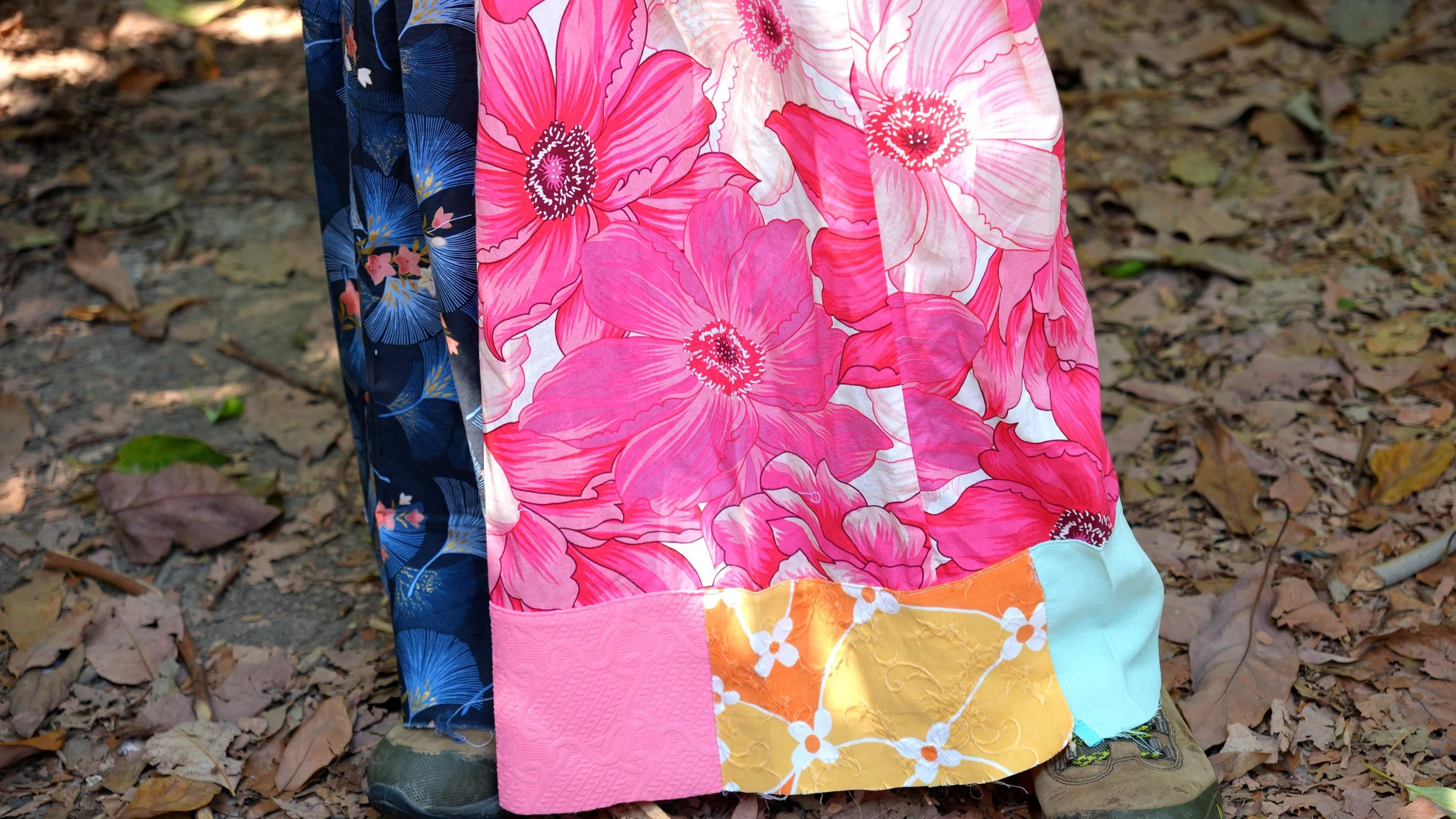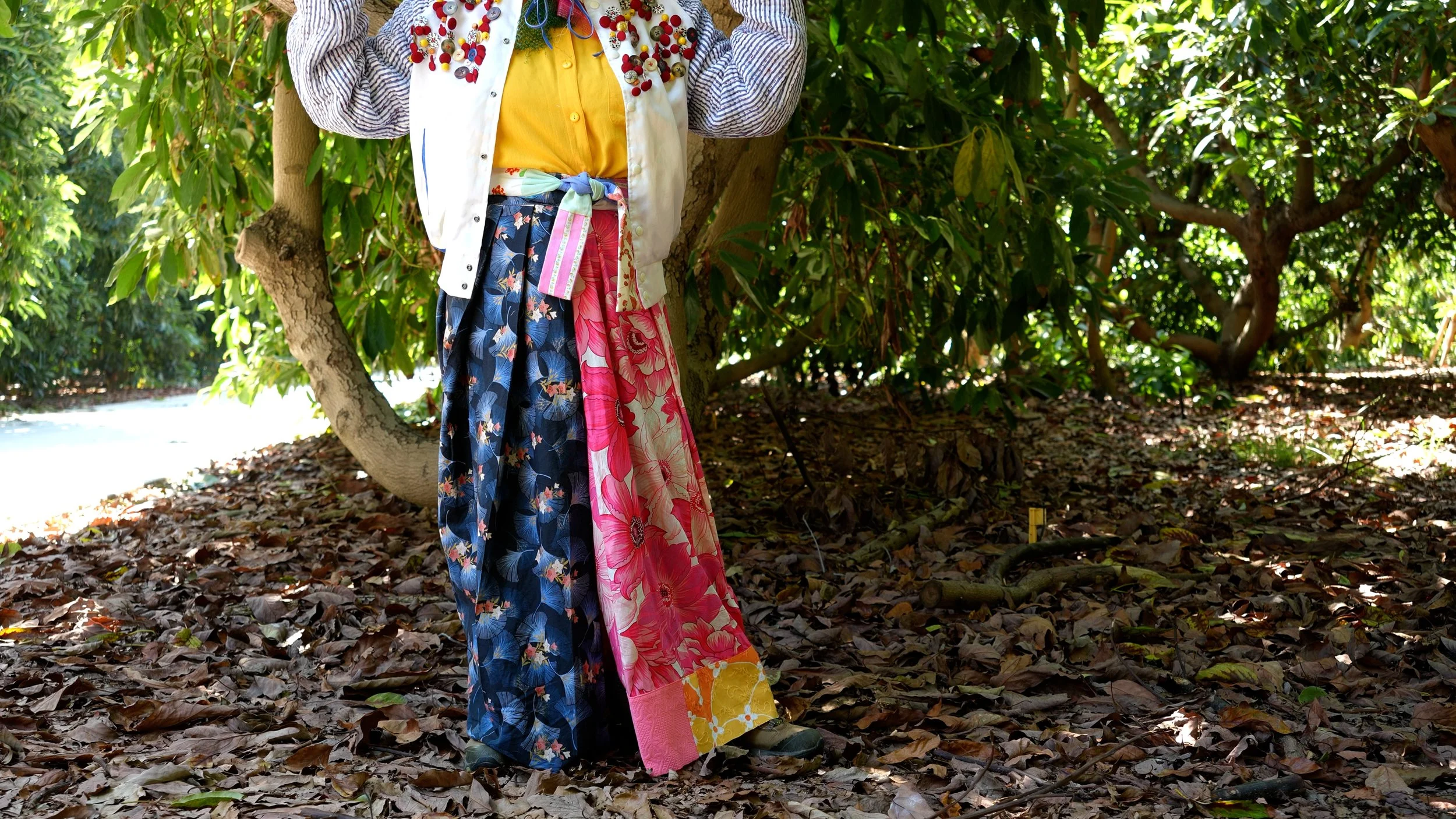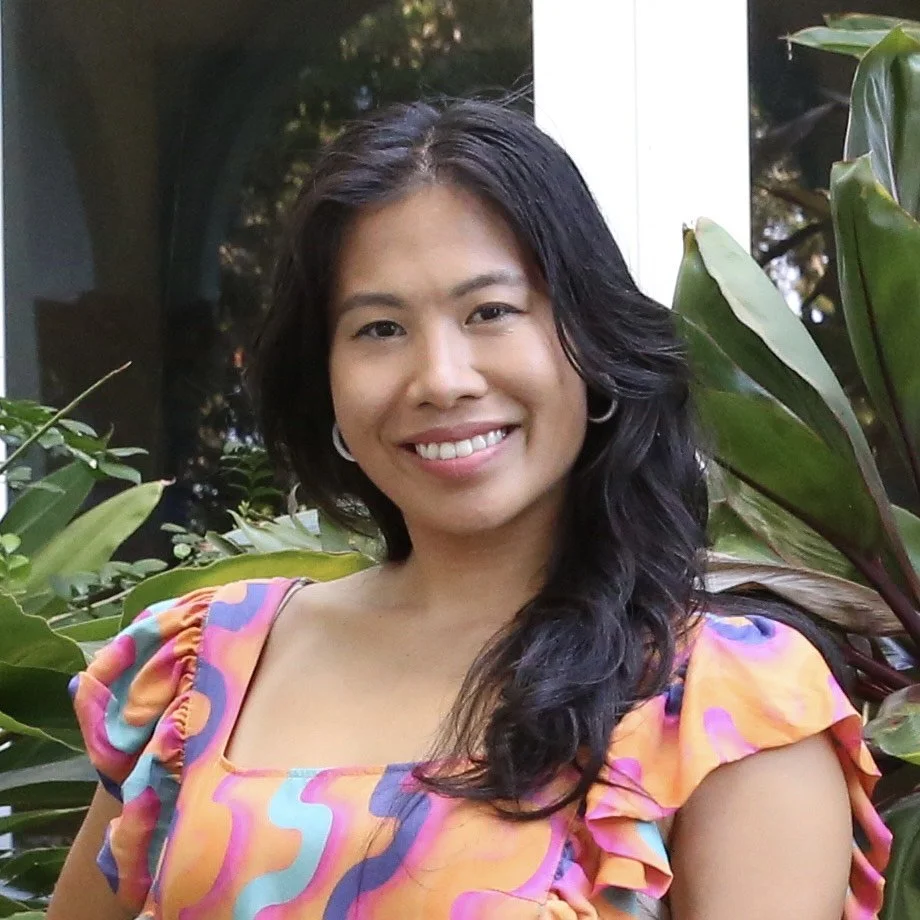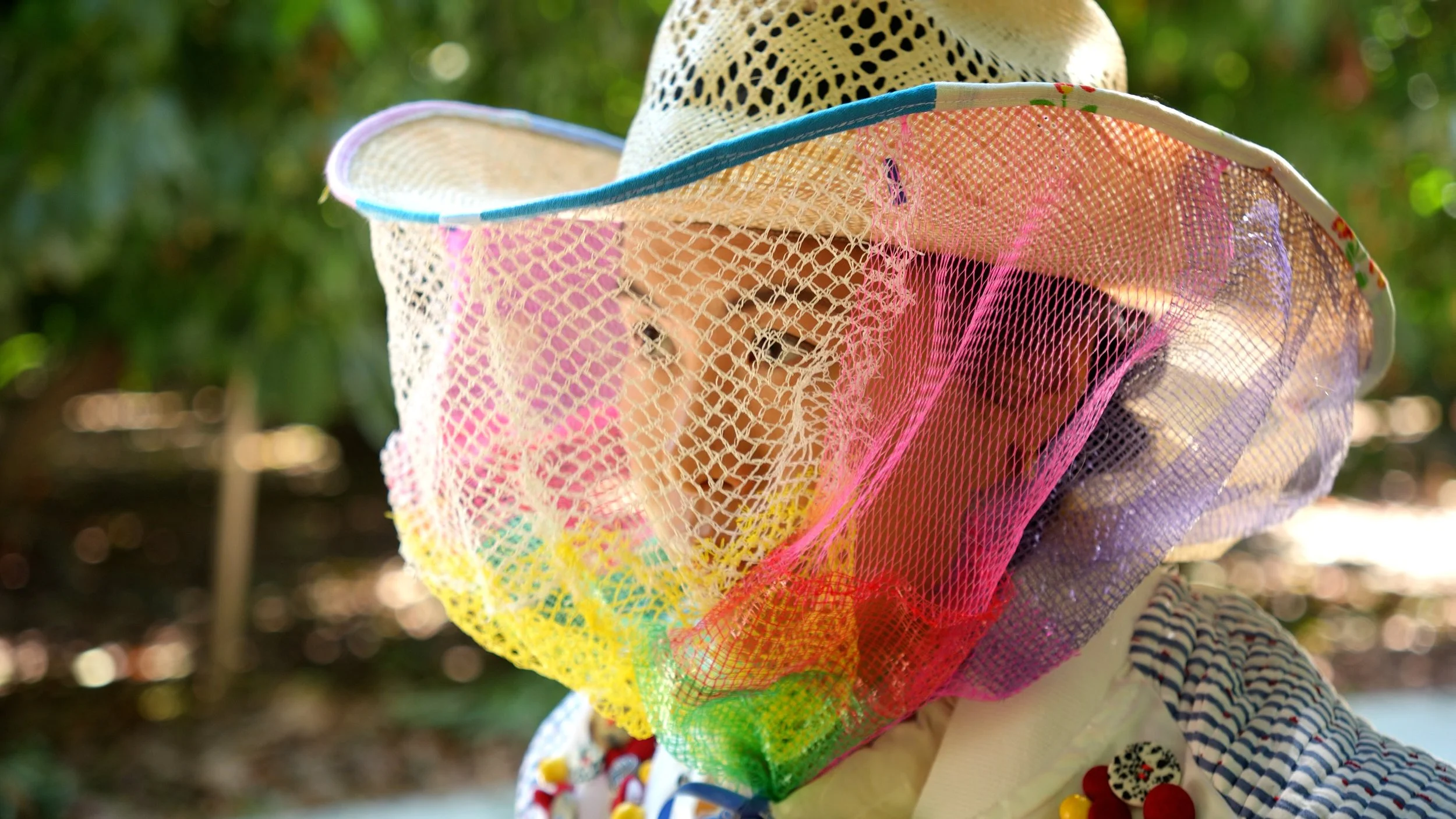
Farmer Armor
Harmony Richards
Farmer Armor
Harmony Richards
with support from Taylen Richards
Dual-medium artwork: textile & video
Materials:
Cowboy Hat – thrifted
Protective Mesh – upcycled vegetable mesh bags
Jacket – upcycled from five different items
Buttons – thrifted
Button-up – thrifted and altered
Pants – upcycled from four different items
Farmer Armor draws on the visual language of artist Richards’ mixed Japanese and Filipino heritage—symbols like the Filipino flag, the Japanese red sun, hakama pants, and the straw hats worn by Filipino cowboys. These cultural references are woven into the imagined landscapes of California farms, where they meet subtle nods to Americana. The final silhouette of the work is grounded in over 80 hours of field research across several months, during which Richards interviewed agricultural workers about what they might wear in the future. Their stories and visions shaped a narrative that was brought to life using secondhand garments and reclaimed fabric. The result is a piece of speculative workwear—part fantasy, part lived experience. Each element of the outfit was built from reused materials, embodying a patchwork of memory, resilience, and imagination. An accompanying video deepens the narrative, following a figure farming in a surreal, future landscape. Walking through avocado groves, they wear not just clothing, but the layered hopes and histories of today’s farmworkers.
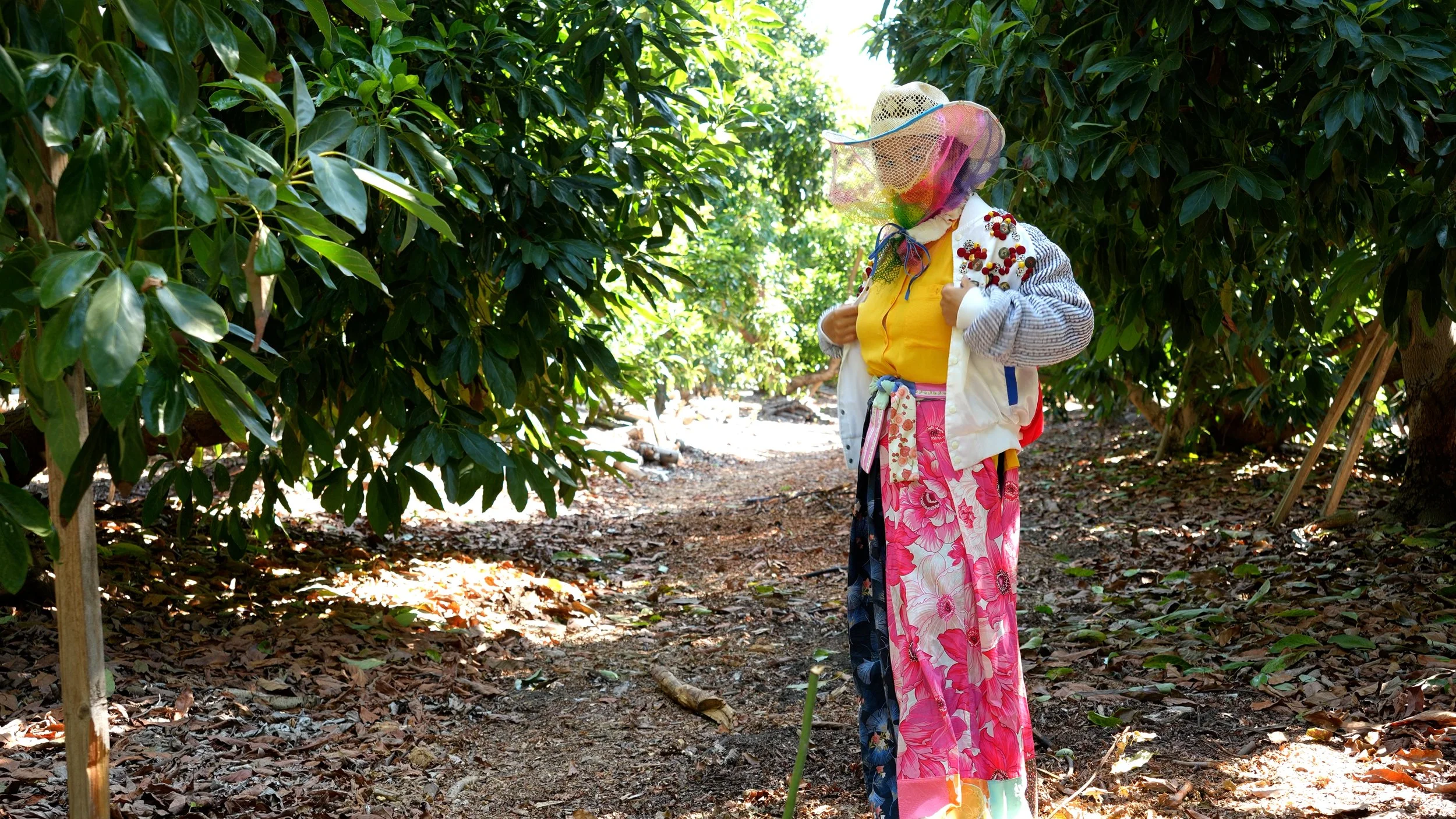
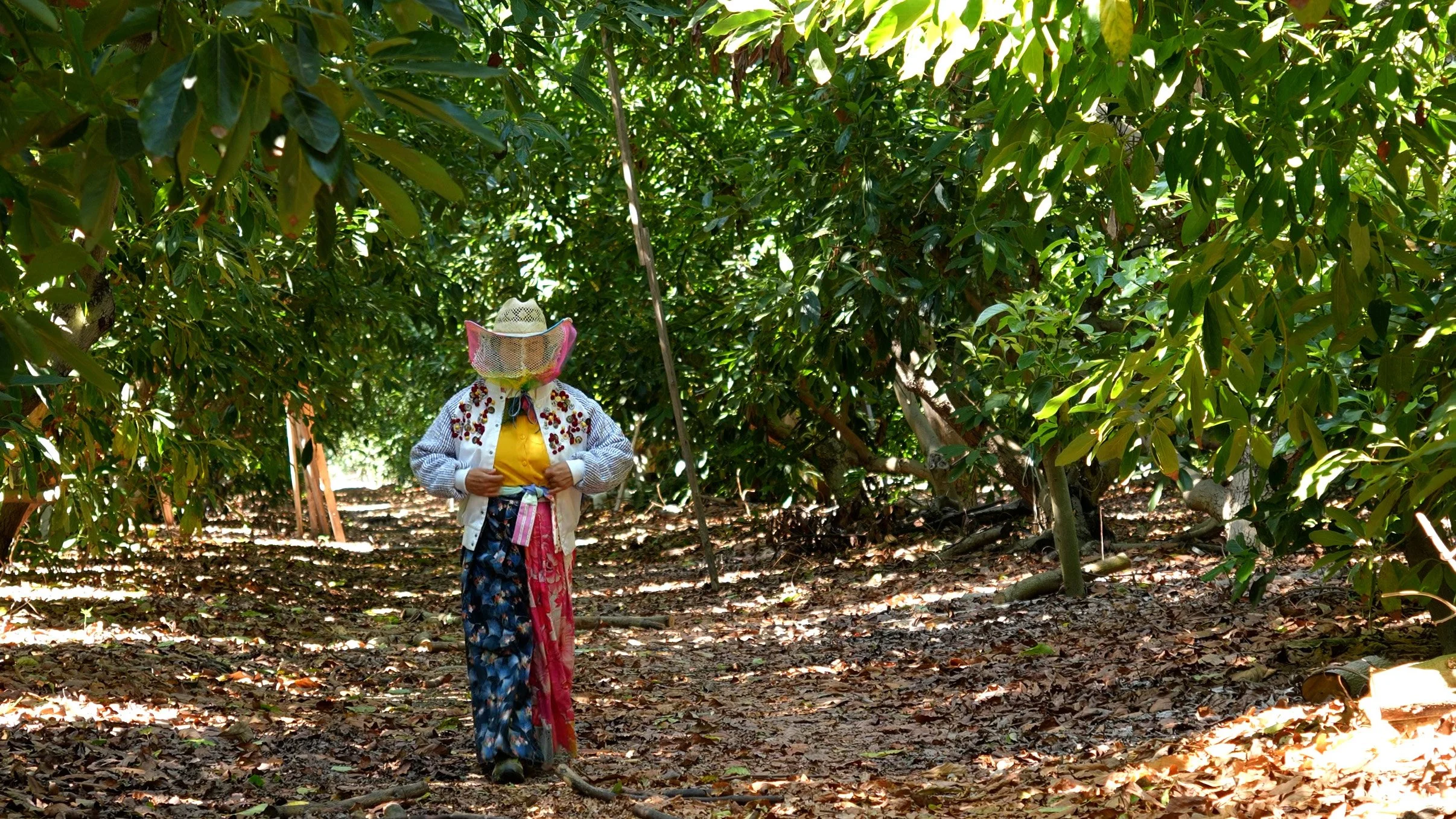
Harmony Richards
38, Los Angeles, California USA
Harmony Richards’ “farmer armor” is a mixed media experience combining textile and video. Central to the piece is workwear crafted from entirely secondhand materials, exploring the intersection of agriculture, fashion, and her AAPI heritage. The final piece is informed by over eighty hours of fieldwork, 13 thrift stores, and a generous donation of garments from the LA based non-profit Suay Sew Shop. It serves as a manifestation of what farm workers dream of wearing 50 years from now.
Harmony Richards aims to inspire their viewers with a resourceful perspective of the future. Her life’s work often explores two themes: “How can waste be a source of abundance?” . As a child of immigrants, she grew up with sustainable living being a necessity. Seeing her parents repurpose every item in the house has become a source of creativity in their work. And “What does it mean to be Asian American?”. While the term can be seen as problematic in creating the entire Asian diaspora as a monolith. Her mixed Japanese Filipino heritage is uniquely American. She consistently draws from cultural concepts such as Japanese wabi-sabi, the idea of living perfectly imperfect, and Filipino Bayanihan, living in community without expectation. You will find them expanding their work on Farmer Armor over the course of the next year. In 2026, she aims to find new ways of bridging small farms with her local fashion communities.
Harmony Richards is a mother and slow fashion advocate, based in occupied Tongva land

